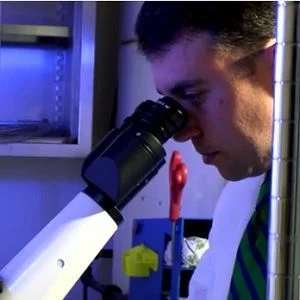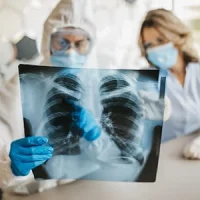As the South Korean epidemic of Middle East Respiratory Syndrome (MERS) continues unabated, University of Maryland School of Medicine scientists have announced the discovery of two therapeutics that show potential in preventing and treating the disease. The treatments are the first to succeed in protecting and treating animal models of the MERS virus; the study is published in PNAS.
Two antibodies, REGN3051 and REGN3048, showed an ability to neutralise the virus, according to UMSOM researchers, who did the study in collaboration with Regeneron Pharmaceuticals (Tarrytown, New York). Some of the company’s proprietary technologies were used in the study to search for and validate effective antibodies targeting the virus.
“While early, this is very exciting, and has real potential to help MERS patients,” says lead researcher Matthew B. Frieman, PhD, an assistant professor of microbiology and immunology at UMSOM. “We hope that clinical study will progress on these two antibodies to see whether they can eventually be used to help humans infected with the virus.”
Prof. Frieman's team also announced the development of a novel strain of mice, which will help scientists understand the disease and look for treatments. This work relied on Regeneron’s VelociGene technology to create partially humanised mice that can be infected with MERS. “Mice are typically not susceptible to MERS,” Prof. Frieman explains. “This new mouse model will significantly boost our ability to study potential treatments and help scientists to understand how the virus causes disease in people.”
MERS was first discovered in 2012 in Saudi Arabia. It appears that the disease spread to humans from camels, who may themselves been infected by bats. Research has shown that it is similar to severe acute respiratory syndrome (SARS) — both are caused by Coronaviruses, both cause respiratory problems, and both are often fatal.
The South Korean outbreak began last month when a traveller returned from Saudi Arabia, and infected many people before authorities realised he had the disease. So far, around 180 people have been infected in South Korea, and nearly 30 have died.
“Prof. Frieman’s work provides the first glimmer of hope that we can treat and cure this threatening virus,” says Dean E. Albert Reece, MD, PhD, MBA, who is also the vice president for Medical Affairs, University of Maryland, and the John Z. and Akiko K. Bowers Distinguished Professor and Dean of the School of Medicine. “I know that they will continue to work hard to see whether these compounds can take the next steps to clinical trials.”
Source and image credit: University of Maryland School of Medicine
Two antibodies, REGN3051 and REGN3048, showed an ability to neutralise the virus, according to UMSOM researchers, who did the study in collaboration with Regeneron Pharmaceuticals (Tarrytown, New York). Some of the company’s proprietary technologies were used in the study to search for and validate effective antibodies targeting the virus.
“While early, this is very exciting, and has real potential to help MERS patients,” says lead researcher Matthew B. Frieman, PhD, an assistant professor of microbiology and immunology at UMSOM. “We hope that clinical study will progress on these two antibodies to see whether they can eventually be used to help humans infected with the virus.”
Prof. Frieman's team also announced the development of a novel strain of mice, which will help scientists understand the disease and look for treatments. This work relied on Regeneron’s VelociGene technology to create partially humanised mice that can be infected with MERS. “Mice are typically not susceptible to MERS,” Prof. Frieman explains. “This new mouse model will significantly boost our ability to study potential treatments and help scientists to understand how the virus causes disease in people.”
MERS was first discovered in 2012 in Saudi Arabia. It appears that the disease spread to humans from camels, who may themselves been infected by bats. Research has shown that it is similar to severe acute respiratory syndrome (SARS) — both are caused by Coronaviruses, both cause respiratory problems, and both are often fatal.
The South Korean outbreak began last month when a traveller returned from Saudi Arabia, and infected many people before authorities realised he had the disease. So far, around 180 people have been infected in South Korea, and nearly 30 have died.
“Prof. Frieman’s work provides the first glimmer of hope that we can treat and cure this threatening virus,” says Dean E. Albert Reece, MD, PhD, MBA, who is also the vice president for Medical Affairs, University of Maryland, and the John Z. and Akiko K. Bowers Distinguished Professor and Dean of the School of Medicine. “I know that they will continue to work hard to see whether these compounds can take the next steps to clinical trials.”
Source and image credit: University of Maryland School of Medicine
Latest Articles
healthmanagement, MERS, University of Maryland, SARS, Regeneron Pharmaceuticals, antibodies
As the South Korean epidemic of Middle East Respiratory Syndrome (MERS) continues unabated, University of Maryland School of Medicine scientists have announced the discovery of two therapeutics that show potential in preventing and treating the disease.








